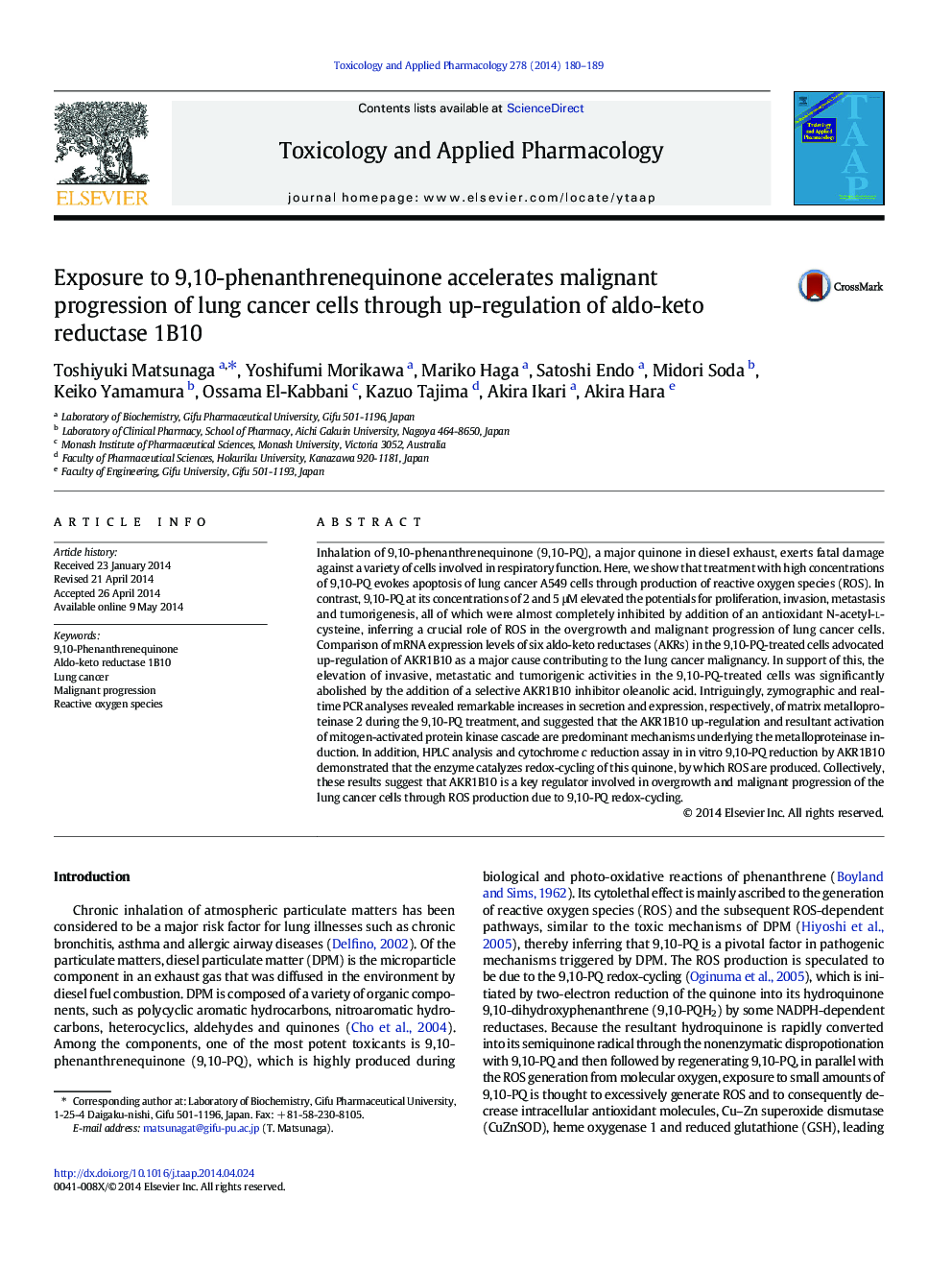| کد مقاله | کد نشریه | سال انتشار | مقاله انگلیسی | نسخه تمام متن |
|---|---|---|---|---|
| 2568659 | 1128471 | 2014 | 10 صفحه PDF | دانلود رایگان |

• 9,10-PQ promotes invasion, metastasis and tumorigenicity in lung cancer cells.
• The 9,10-PQ-elicited promotion is possibly due to AKR1B10 up-regulation.
• AKR1B10 acts as a key regulator for MMP2 induction via activation of MAPK cascade.
• AKR1B10 is a predominant reductase involved in redox-cycling of 9,10-PQ in the cells.
Inhalation of 9,10-phenanthrenequinone (9,10-PQ), a major quinone in diesel exhaust, exerts fatal damage against a variety of cells involved in respiratory function. Here, we show that treatment with high concentrations of 9,10-PQ evokes apoptosis of lung cancer A549 cells through production of reactive oxygen species (ROS). In contrast, 9,10-PQ at its concentrations of 2 and 5 μM elevated the potentials for proliferation, invasion, metastasis and tumorigenesis, all of which were almost completely inhibited by addition of an antioxidant N-acetyl-l-cysteine, inferring a crucial role of ROS in the overgrowth and malignant progression of lung cancer cells. Comparison of mRNA expression levels of six aldo-keto reductases (AKRs) in the 9,10-PQ-treated cells advocated up-regulation of AKR1B10 as a major cause contributing to the lung cancer malignancy. In support of this, the elevation of invasive, metastatic and tumorigenic activities in the 9,10-PQ-treated cells was significantly abolished by the addition of a selective AKR1B10 inhibitor oleanolic acid. Intriguingly, zymographic and real-time PCR analyses revealed remarkable increases in secretion and expression, respectively, of matrix metalloproteinase 2 during the 9,10-PQ treatment, and suggested that the AKR1B10 up-regulation and resultant activation of mitogen-activated protein kinase cascade are predominant mechanisms underlying the metalloproteinase induction. In addition, HPLC analysis and cytochrome c reduction assay in in vitro 9,10-PQ reduction by AKR1B10 demonstrated that the enzyme catalyzes redox-cycling of this quinone, by which ROS are produced. Collectively, these results suggest that AKR1B10 is a key regulator involved in overgrowth and malignant progression of the lung cancer cells through ROS production due to 9,10-PQ redox-cycling.
Figure optionsDownload high-quality image (305 K)Download as PowerPoint slide
Journal: Toxicology and Applied Pharmacology - Volume 278, Issue 2, 15 July 2014, Pages 180–189